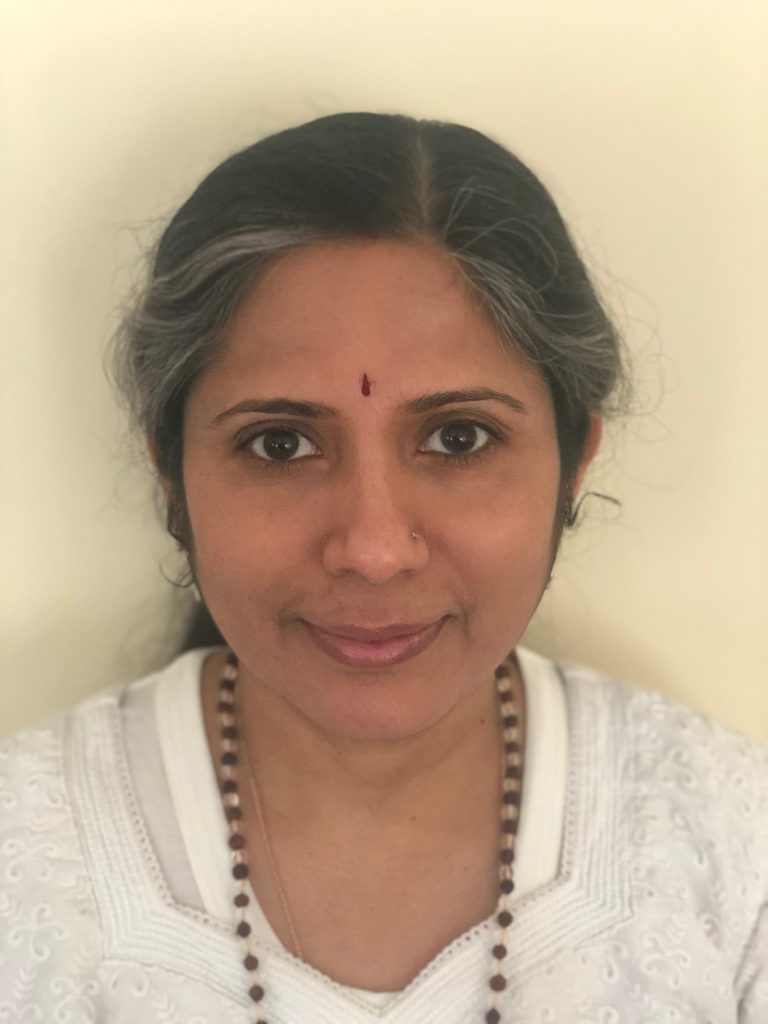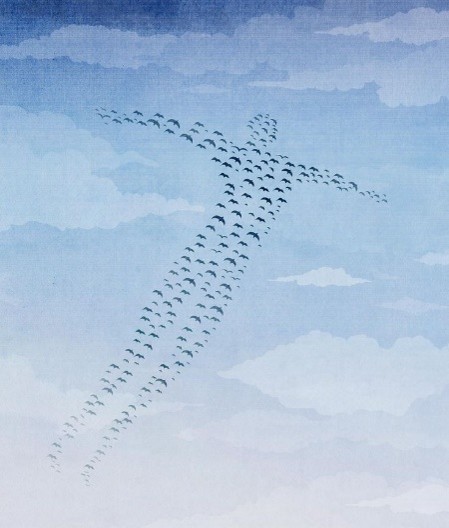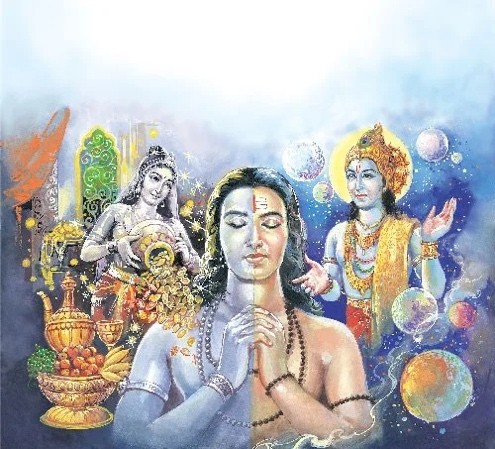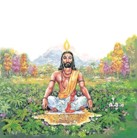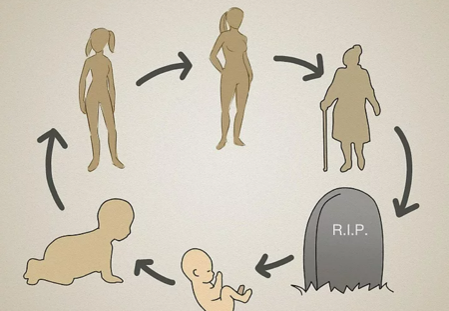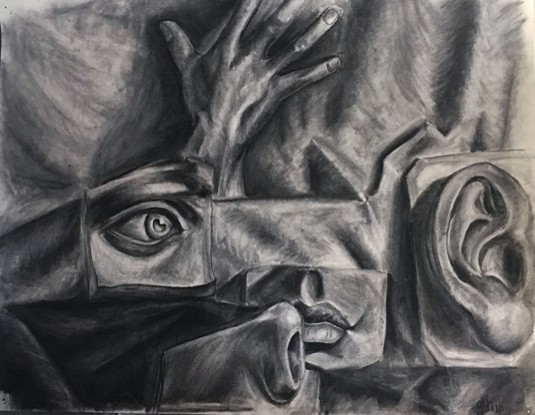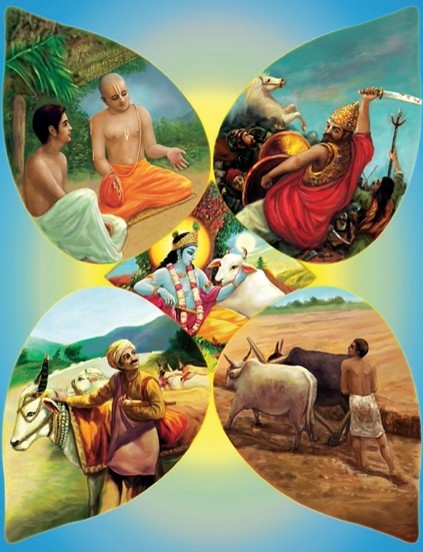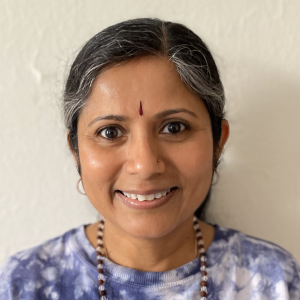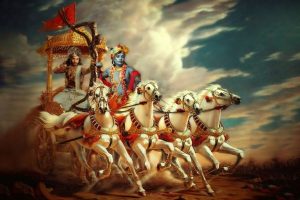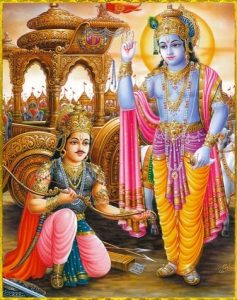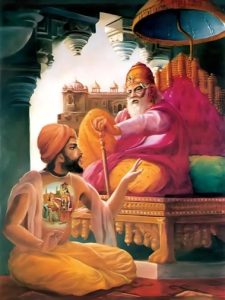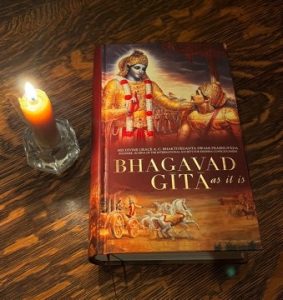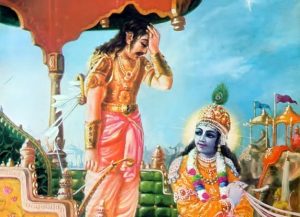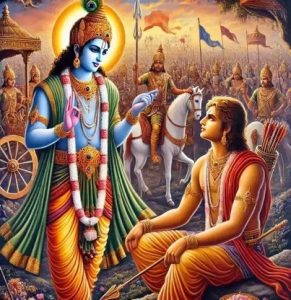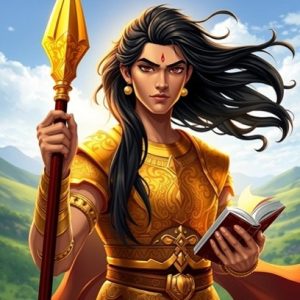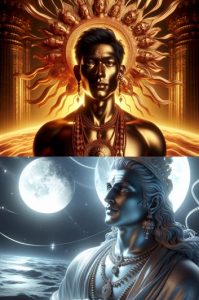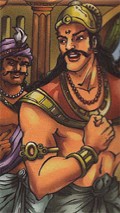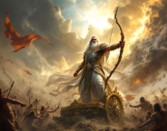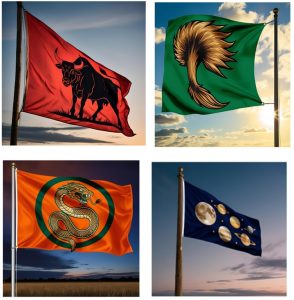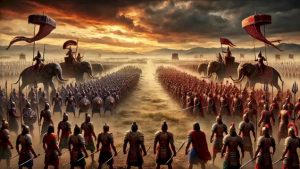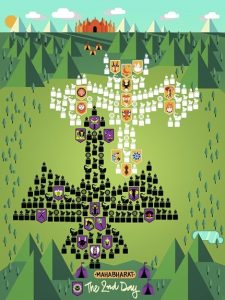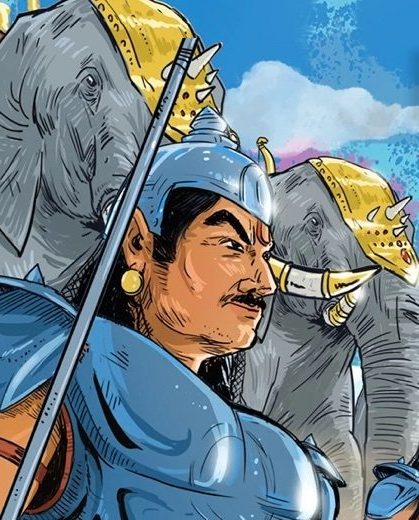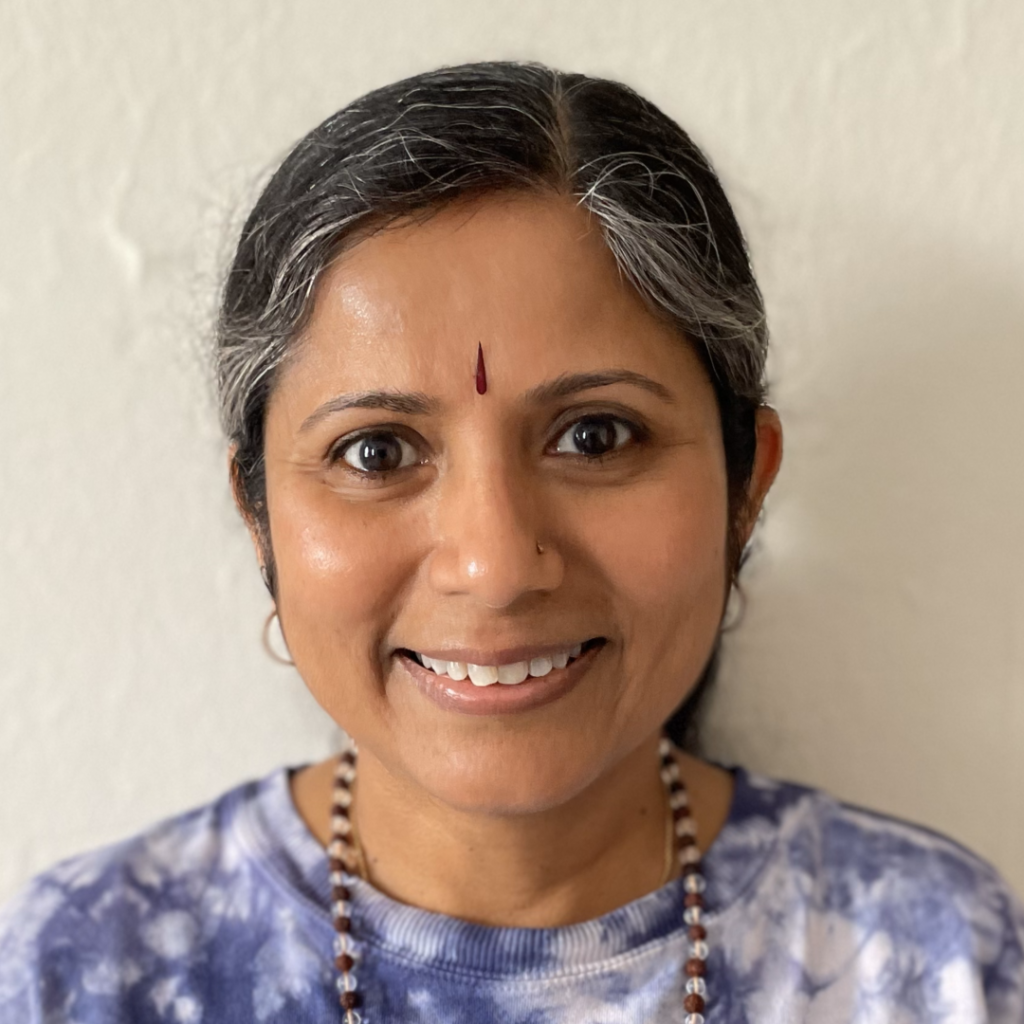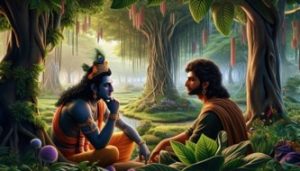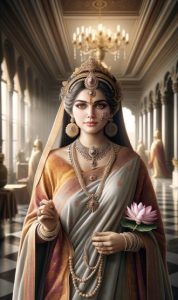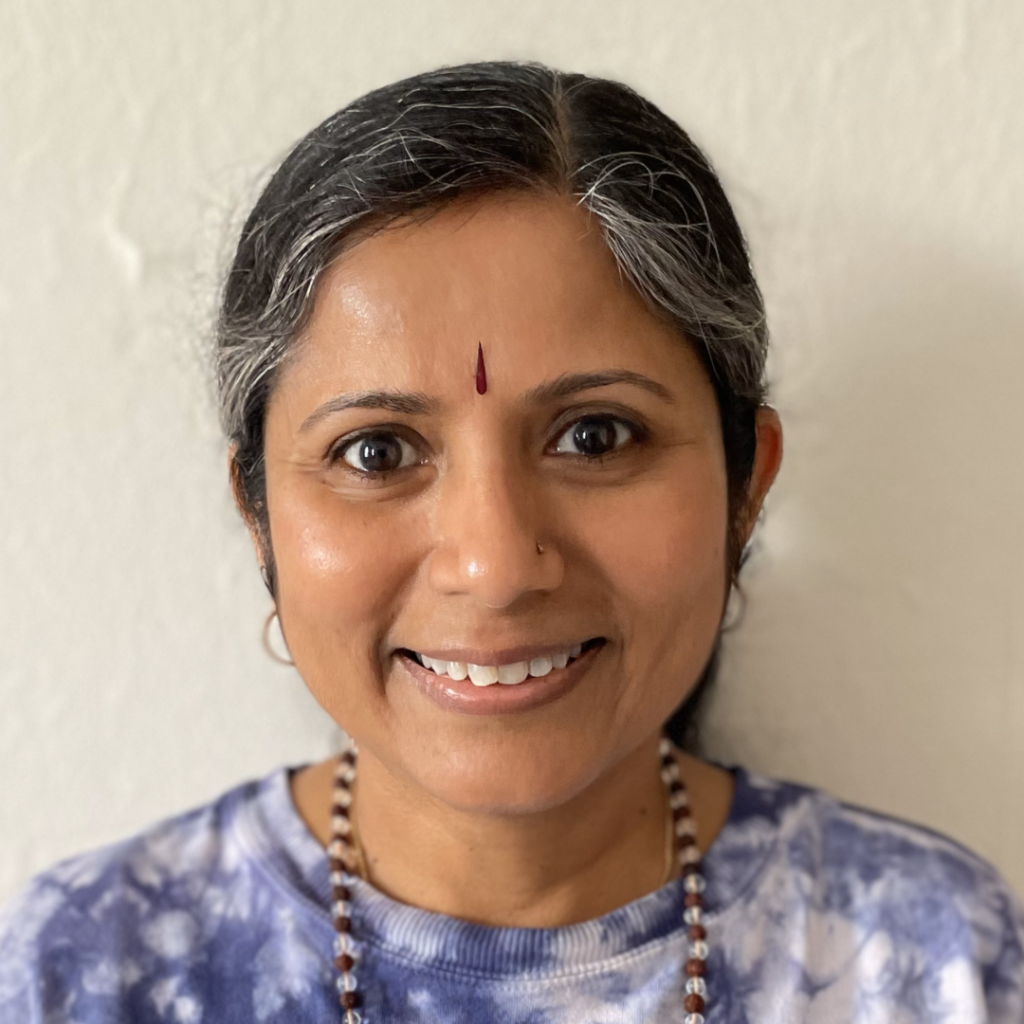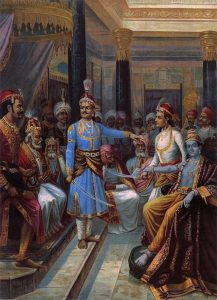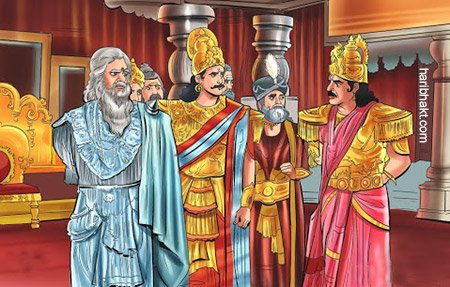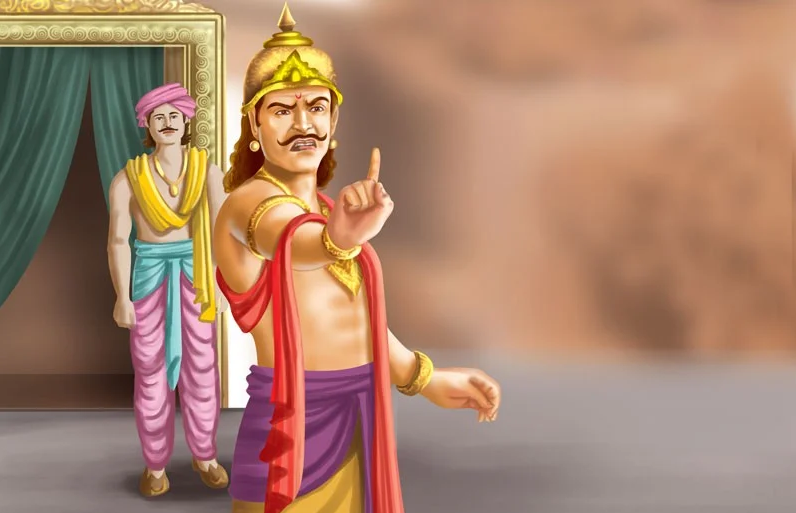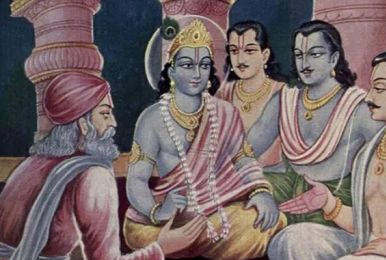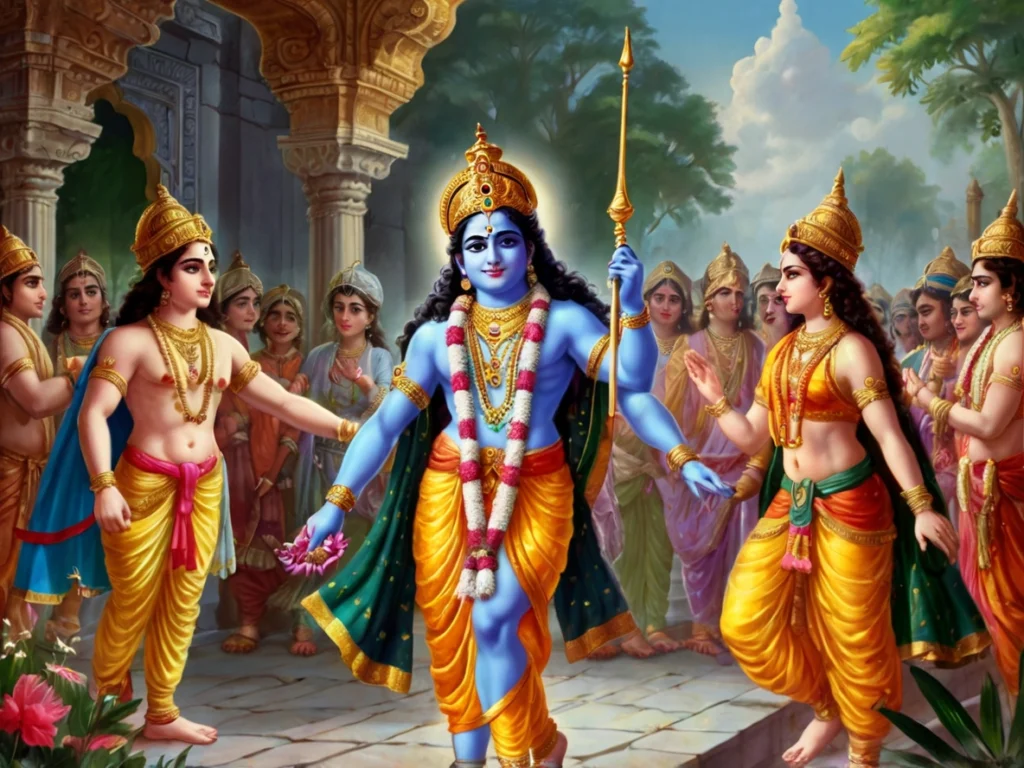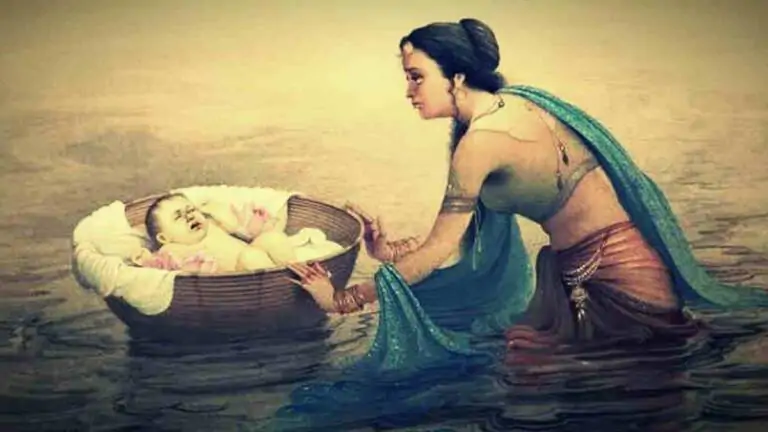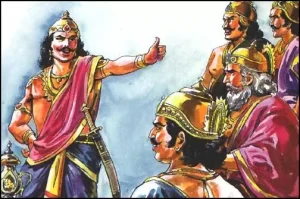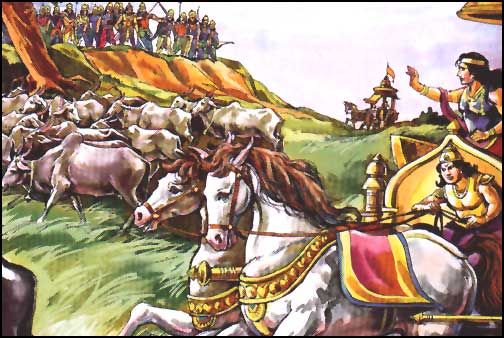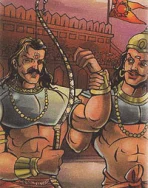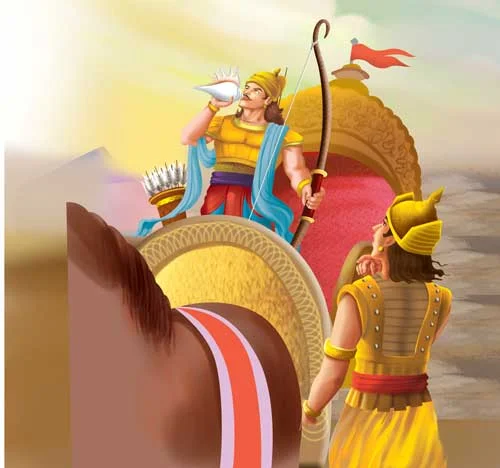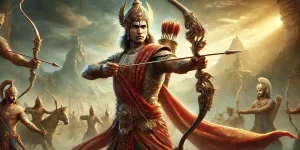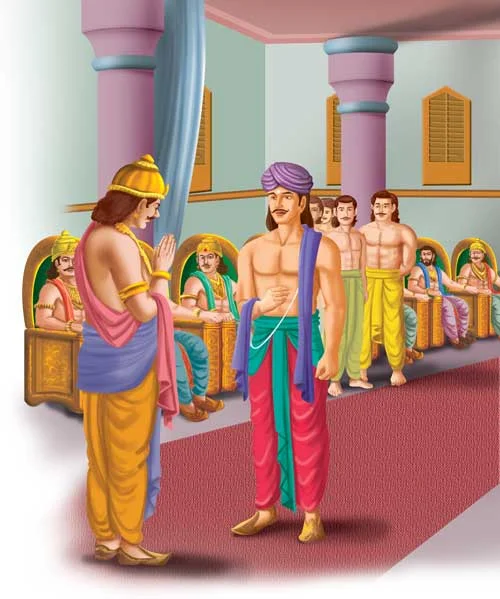By Nirooshitha Sethuram, Yogaratna
Graphics by Sheralee (Shambhavi) Hancherow
Chapter 7: Vijñana Yoga — The Yoga of Realization
Here, Krishna delves into the profound knowledge and understanding of the Divine. He imparts wisdom that surpasses people’s normal awareness, going into the realization of the ultimate truth.
The essence of Divine knowledge is not just intellectual knowing, he explains. It is a deeper, experiential knowing of Divine presence, through which you can attain true understanding and liberation.

Krishna reveals his various manifestations as well as the way he pervades the whole universe. As the source of all creation, sustenance and governance of existence, he possesses the Divine attributes of omnipotence, omnipresence, and omniscience. By recognizing Krishna’s omnipresence, you can understand a deeper connection between all that exists with the Divine.
Devotees are of four types, Krishna explains. First are the ones in distress; second are the ones seeking knowledge; third are those who desire material gain; fourth are the wise ones. The wise devotees are the most revered, as they seek the Divine for the sake of pure love and devotion, rather than personal gain.
Outlining the path to realizing the Divine, Krishna emphasizes the importance of unwavering faith and devotion. By freedom from worldly desires, through surrender and engaging in constant remembrance of Him, individuals can transcend their limited perceptions and attain Ultimate Truth. Krishna advises letting go of ego and selfish motives, so you can purify your mind and heart, making them receptive to Divine knowledge.
Devotion plays a crucial role in achieving realization, in order to experience Divine presence and receive grace. This devotion must be free from ulterior motives and based on pure love.

The ultimate goal of Vijñana Yoga is to unite with the Divine. Krishna describes this union as a state of complete oneness. This realization brings about profound peace, bliss, and liberation.
In essence, by following the principles of Vijñana Yoga, you attain true wisdom and experiential knowing of the ultimate truth, which leads you to liberation.
The Dialog
Krishna says, “With your mind focused on Me, practicing yoga and taking refuge in Me, without doubt, you will know Me fully. Amongst thousands of souls, hardly one strives for perfection. Amongst those who achieve perfection, no one knows Me in truth.
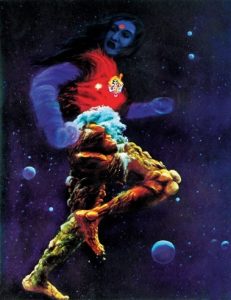
“The eightfold divisions of My nature are earth, water, fire, air, ether, mind, intellect, and egoism. Beyond all this, I am Para Prakriti, the life-element by which the universe is upheld. There is nothing higher than Myself, everything rests in Me, as gems strung on a thread.
“I am the sweet taste of water, the radiance of the sun and moon, the syllable OM in all the Vedas, the sound in space, the ability in man. I am sweet fragrance, the brilliance in fire, the life in all beings and austerity in the austere. I am the Eternal Seed of all things that exist.
“I am the intelligence of the intelligent and the splendor of the glorious. I am the strength of the strong, free from desire and attachment. In all beings, I am the desire that is unopposed to dharma, best among the Bharatas. And whatever things that are sattva (pure), rajas (active), and tamas (inert), the three Gunas, they are all from Me alone. However, I am not in them, they are in Me.
“Because of three qualities the whole world does not know me. This Divine illusion of Mine caused by the qualities, is difficult to cross. Only those who take refuge in Me, cross this illusion.
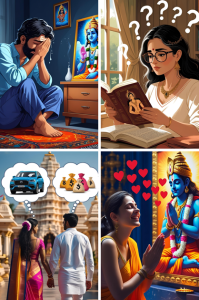
“Those ignorant of knowledge, the evildoers, the deluded, the lowest of men, do not seek Me. Four types of virtuous men worship Me, the dissatisfied, one seeking knowledge, one seeking wealth, and the best are those with wisdom. I am supremely dear to the wise and them to me. Devoted noble indeed are all, but the wise ones, I deem as My very Self. At the end of many births the wise ones come to Me. Such souls are very hard to find.
“Whatever form a devotee seeks to worship with faith, I make his faith unwavering in that form. He attains his desires, granted by Me alone. But the fruit gained by people of small understanding is perishable.
“Those who worship the celestial gods go to the celestial abodes, while my devotees come to Me. Not knowing My supreme Nature, foolish men think that I am endowed with a manifest form. Veiled by My maayaa, born of the Gunas, I am not revealed to all.
“I know the past, present and future of all beings, but no one knows me. By the delusion of the pairs of opposites, arising from yearning and hate, all beings are subject to delusion at birth. But those men whose sin has come to an end, firmly worshiping Me, are freed from the delusive pairs of opposites.
“Those who strive for liberation, taking refuge in Me, realize Brahman, the wholeness of knowledge of the Self and all karmic action. With steadfast mind, those who know Me as the One that underlies everything, and as the governing principle of the celestial Gods, and as the One that sustains all the sacrifices, know Me even in the hour of death.”
Chapter 8: Akshara Parabrahma Yoga — The Yoga of the Imperishable Brahman
This chapter explains the soul, absolute reality and the yogic path to realizing it. It profoundly explores the eternal nature of the soul and the ultimate goal of spiritual practices. Guidance is provided on how to break off the cycle of birth and death by attaining liberation through resolute devotion.
Krishna explains the nature of imperishable Brahman, the essence which is beyond the physical and transient world. Brahman is eternal and unchanging, the underlying reality of all existence, sustaining the universe. Realizing Brahman is the highest goal of spiritual practice.
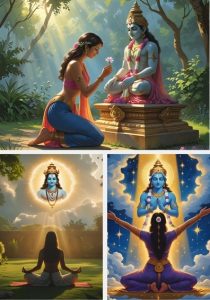
Krishna also outlines the process of breaking free from the cycle of birth and death. By unwavering devotion, meditation and renunciation, those who attain this state of “Imperishable Brahman,” are not subject to rebirth. Instead, they merge with the eternal truth and experience Divine bliss.
Devotion is the central theme. Krishna emphasizes that sincere and unwavering devotion to him, the underlying reality of all existence, is the key to realizing the imperishable Brahman.
This chapter concludes with Krishna’s teachings on the significance of the hour of death. He explains that those with a steadfast mind know Krishna as the underlying essence of everything and the sustainer of all sacrifices. They realize him even in the hour of death. This realization leads to liberation and eternal union with the imperishable Brahman.
Ultimately, this chapter serves as a guide for devotees seeking to merge with the eternal essence and to experience Divine union.
The Dialog
Arjuna asks, “What is Brahman? What is the Adhyatma? What is Karma? What is declared to be the Adhibhuta? And what is Adhidaiva? Who, and how, is Adhiyajña here in this body? And how, at the time of death, are you to be known by the steadfast mind?”
Krishna replies, “Brahman is supreme, imperishable, the Absolute Reality. Brahman’s essential nature is called Adhyatma, Self-knowing. The act that causes the birth of beings is named Karma, action.
“The physical manifestation which changes constantly is called Adhibhuta. The universal form of God, which presides over the celestial gods in this creation, is called Adhidaiva. I, who dwell in the heart of every living being, am called Adhiyajña, the Lord of all sacrifices.
“Those who relinquish their body while remembering Me at the time of death will come to Me. Therefore, at all times, with your mind and intellect absorbed in Me, the Supreme Divine Person, constantly remember Me. With steadfast mind, you shall doubtless come to Me.
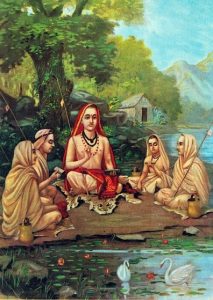
“One who, by the power of yogic practice, fixes the vital breath in the center of their brows, and thinks continuously of Me, the Omniscient and Ancient, attains Me, the self-illumined Paramatma.”
He continues, “I will describe, in brief, That Goal which is declared Imperishable by the knowers of the Vedas. It is That into which the self-controlled and desire-freed enter, That into which Sannyasis enter.
“He who closes all the doors of their senses, confines their mind within their heart, draws their prāna into their head, and engages in the practice of yoga, uttering “OM,” the single syllable denoting Brahman, and meditates on Me when leaving the body, attains Me, the Supreme Goal. These high-souled ones who come to me are not subject to rebirth. All who attain worlds up to Brahmaloka are subject to rebirth.”
Krishna says, “The people who know the length of the day of Brahma to be a thousand yugas and the night to be a thousand yugas, know day and night. At the approach of the day, all manifest objects come forth from the unmanifested. And at the approach of the night, they merge again into it.
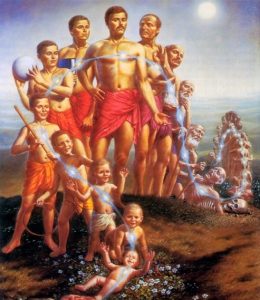
“This same multiplicity of beings are born again and again, and merge helplessly, again and again at night. But beyond this unmanifested reality, there is yet another Unmanifested Eternal. This Unmanifested is called the Imperishable. It is said to be the Ultimate Goal. That is My highest state, supreme Abode. Those who reach It are never again reborn.”
Then he explained, “There are times that yogis depart, never to return, and there are times they return. Taking the path of fire, light, daytime, the bright fortnight, and the six months of the northern solstice, the knowers of Brahman go to Brahman, attaining the supreme destination.
“Smoke, night-time, the dark fortnight, also the six months of the southern solstice, departing by these, the lunar light, the yogi attains celestial abodes and then returns. These two eternal paths, following one, a man does not come back, and following the other, he is reborn. Knowing these paths, no Yogi is deluded.
“Therefore, at all times be steadfast in yoga. The yogi who knows this, transcends all and reaches the Supreme, Primal Essence.”
More to come…
- Krishna as source of all creation
https://krishna.com/topic-index/creation/how-he-creates/ ↩︎ - Goal of Vijñana Yoga, uniting with Divine
https://www.hinduwebsite.com/yoksum_1to9.asp#google_vignette ↩︎ - The Eightfold Divisions
https://prabhupadagita.com/2012/12/28/knowledge-of-the-absolute/ ↩︎ - Four Types of Devotees
Graphic by S. Hancherow/Canva ↩︎ - Break free of rebirth through devotion, meditation & renunciation
Graphic by S.Hancherow/Canva ↩︎ - Sannyasis
https://en.m.wikipedia.org/wiki/Bhagavad_Gita ↩︎ - The cycle of birth and rebirth
https://shrimadbhagvadgita.in/post/3e401e58-be33-4c21-a846-a9926d5a5b65?language=en ↩︎

